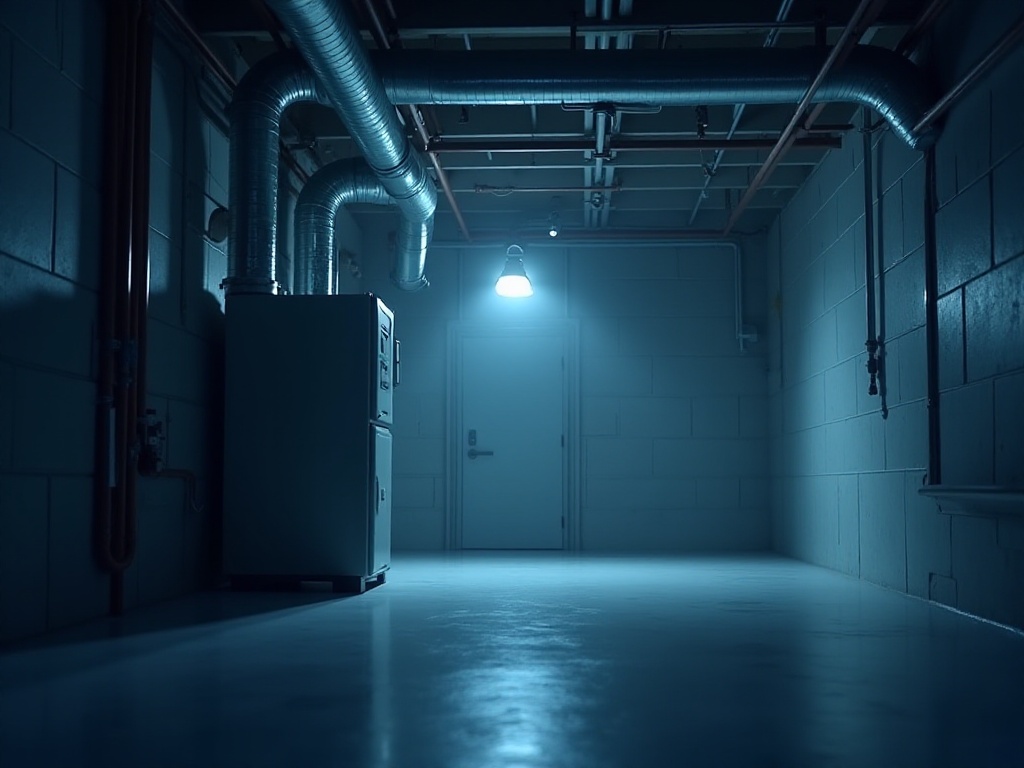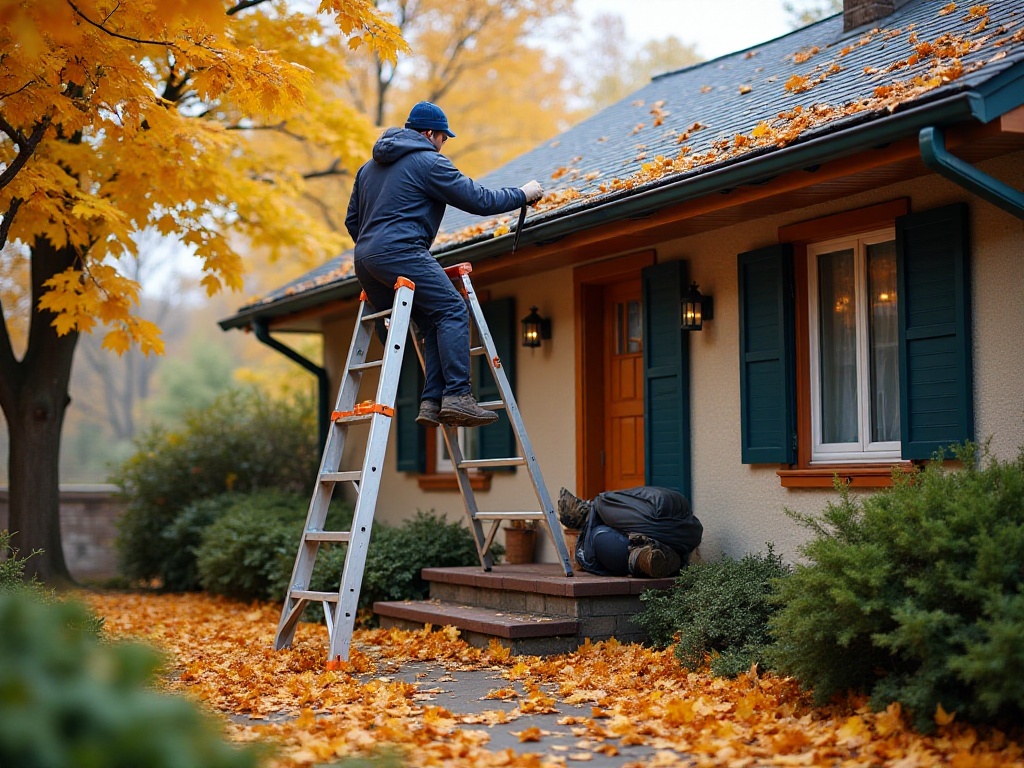Opening Thoughts
A particularly frustrating incident happened a few days ago - our drain suddenly clogged up, causing me a huge headache. It took half a day to resolve the issue, with water ending up everywhere. This incident made me really regret not doing regular maintenance. Come to think of it, isn't this how we often are, waiting until things actually break down before thinking about maintenance?
Every time something breaks at home, we either spend a lot of money on repairs or fumble around trying to fix it ourselves. This situation is both costly and frustrating. After this lesson, I decided to properly research house maintenance methods. After consulting various sources and experienced friends, I finally compiled a practical house maintenance guide. Today I'd like to share these experiences with you, hoping to help you keep your home in better condition.
Monthly Checks
To be honest, when I first started doing monthly checks, I found it really troublesome. But after making it a habit, I realized it wasn't that difficult. Like brushing teeth and washing face daily, it might need conscious reminding at first, but becomes natural over time. I now set every first weekend of the month as house inspection day, so I won't forget.
Safety First
Safety issues really can't be taken lightly. I remember there was a fire in the neighboring community last year because nobody noticed the smoke detector's battery was dead. Fortunately, it was discovered early, otherwise the consequences would have been unimaginable. This incident really affected me, and since then I've paid special attention to checking safety equipment at home.
For monthly safety checks, I prepare a detailed checklist. First are the smoke detectors, which are really crucial. I have three installed - in the kitchen, living room, and bedroom. Every month I press the test button to hear the "beep" sound for peace of mind. Once during testing, I found the kitchen one wasn't responding - turns out it was just too dusty, and worked fine after cleaning.
Many people might not understand the importance of carbon monoxide detectors. This gas is really scary because it's completely undetectable. Since my water heater uses gas, I pay special attention to this issue. When checking the carbon monoxide detector, I always follow the manual carefully. I remember once finding a low battery warning and immediately replaced the batteries. It's better to be over-cautious than careless with these things.
Door and window security checks are also important. Every month I check all door locks and window latches, mainly looking for looseness or rust. Previously, the security door lock showed signs of sticking, but fortunately I caught it early and solved it with some lubricant. If I hadn't noticed then, we might have been locked out one day.
Electrical safety is also crucial. I check all outlets and switches for signs of blackening or overheating. Home wiring also needs regular inspection, especially in places where furniture might press against it. I bought a special outlet tester that can check if grounding is normal, which is quite useful.
Basic Cleaning
When it comes to cleaning, many might think daily cleaning is enough. But monthly deep cleaning is different from daily maintenance. Monthly cleaning needs to be more thorough and comprehensive.
The kitchen needs the most thorough cleaning. The range hood needs to be cleaned thoroughly once a month, otherwise oil buildup not only affects ventilation but can also drip. I choose a sunny weekend to remove the filter, soak it in hot water with detergent for half an hour, then scrub it carefully with a brush. After washing, I dry it on the balcony, letting sunlight help with disinfection.
Monthly refrigerator cleaning is also important. Each time I take everything out and check for expired food. Then I wipe the interior with a solution of warm water and baking soda, which eliminates odors without leaving chemical cleaner residue. Regular defrosting of the freezer is necessary - too much frost not only affects cooling efficiency but also increases electricity costs.
Cabinets and storage rooms need monthly organization too. I've found that without regular organization, things mysteriously pile up. During organization, everything needs to be taken out, cabinet interiors wiped down, then items reorganized and replaced according to frequency of use. This not only maintains cleanliness but also makes finding things much easier.
Bathroom monthly cleaning cannot be neglected. Toilets, bathtubs, and sinks all need deep cleaning with professional cleaners. Drains and pipes need to be treated with special drain cleaner to prevent clogs. Shower heads need regular descaling, otherwise water flow becomes weak. I soak them in white vinegar overnight, and they're like new the next day.
Seasonal Maintenance
Seasonal maintenance is a particularly important part of house maintenance. Different seasons have different focus points that need targeted maintenance.

Spring and Fall Deep Cleaning
Spring and fall temperatures are most suitable for deep cleaning, not too hot like summer or too cold like winter. Cleaning and maintenance work is most efficient during these times.
Drainage system cleaning must be done during these times. I used to wait until heavy rain to discover drainage problems, but now I've wisened up and check everything at season changes. Roof downspouts and ground drainage ditches all need careful cleaning, removing accumulated leaves and debris. Use a pressure washer to check if water flows smoothly. Although this is more work, it's much cheaper than calling professionals.
Air conditioner maintenance is also a key task for spring and fall. Many people think air conditioner maintenance must be done by professionals, but actually many basic maintenance tasks can be done yourself. Like cleaning the filter, it's really simple - just remove it, rinse with water, let it dry, and put it back. Clear debris around the outdoor unit to ensure good ventilation. Only call professionals if you notice cooling or heating isn't working well. This saves money while extending the air conditioner's life.
Window and door frame cleaning should be done during these seasons. Spring and fall tend to be dusty, and windows easily accumulate dirt. I carefully clean the window frame gaps and check if the seals are intact. If damage is found, repair or replace them while the weather is good. Door frame bottoms easily collect dust, need thorough vacuuming, then wiping with a damp cloth.
Balcony and terrace maintenance should also be scheduled for spring and fall. Check if railings are secure and if there are floor cracks. If you have plants, this is also the best time for pruning and fertilizing. Carefully check waterproofing, if damage is found repair it promptly, otherwise it'll be troublesome during rainy season.
Winter Protection
Winter house maintenance mainly focuses on cold protection and warmth retention. If maintenance isn't done properly this season, it not only affects living comfort but might also bring safety hazards.
First is freeze protection. Pipes are most susceptible to freezing, especially outdoor pipes. I wrap exposed pipes with insulation cotton, and during severe cold weather, let water drip slightly to prevent pipes from freezing and bursting. Last year, my neighbor's pipes burst, flooding their home and causing huge losses.
Roof and drainage system ice prevention work is also important. If ice dams form, they need prompt treatment. I've developed a trick of sprinkling de-icer in places prone to icing, which effectively prevents ice dam formation. Of course, be careful with de-icer amount, too much might damage the roof surface.
Heating system maintenance is one of winter's most important tasks. Each radiator needs careful cleaning, using a vacuum cleaner to remove dust from gaps. Regular radiator bleeding is also necessary to improve heating efficiency. I've noticed rooms are noticeably warmer after cleaning radiators, and they make less noise too.
Door and window insulation work can't be neglected. Window gaps tend to expand in winter, causing drafts. I check door and window seals, replacing any damaged ones immediately. For older windows, adding weatherstripping works quite well. These small investments can save significant heating costs.

Summer Maintenance
Summer house maintenance mainly deals with high temperatures and heavy rain. If maintenance isn't done properly this season, it can easily affect quality of life.
Waterproofing work is crucial. Before rainy season, check all house waterproofing. Especially waterproofing layers around balconies and windows, check for cracks or peeling. I keep some waterproofing materials ready to repair problems promptly. Once during heavy rain, my neighbor's house leaked, but mine had no issues thanks to waterproofing maintenance.
Ventilation system maintenance is also important. Exhaust fans need regular cleaning; too much dust on the grilles not only affects ventilation but can breed bacteria. I usually use a soft brush with cleaner to gently scrub, then rinse with clean water. Ventilation louvers also need cleaning to ensure smooth air flow.
Sun protection can't be ignored. Strong summer sun can fade furniture and floors. I apply UV film on windows or install sunshades. Furniture should avoid direct sunlight when possible, repositioning if necessary. If floors get regular sun exposure, periodic waxing can extend their life.
Zone Maintenance
Different areas need different maintenance methods and focus points, requiring targeted maintenance.

Floor Care
Floors are the most frequently used areas; proper maintenance can greatly extend their lifespan.
Carpet maintenance requires know-how. Besides daily vacuuming, use professional carpet cleaner for monthly deep cleaning. I found using ice cubes to treat carpet dents works particularly well without damaging fibers. Just place ice cubes on dents, let them melt naturally, and carpet fibers gradually recover. I've tried this method several times with good results.
Wood floor maintenance also needs technique. Daily cleaning should use dry mops, avoiding excess moisture. For scratches, rubbing with walnuts works well - walnut oil makes scratches less noticeable. Coffee staining is also a good choice for dark floors. For dents, the wet towel and iron method really works, but be careful with temperature and time to avoid damaging the floor.
Tile floor maintenance mainly focuses on cleaning gaps. Tile gaps easily accumulate dirt; brushing with baking soda water using a toothbrush works well. If tiles become loose, get them fixed promptly to prevent worsening. Regular waxing not only protects surfaces but makes floors look more glossy.
Wall Maintenance
Wall maintenance seems simple but actually has many considerations. Different wall materials need different maintenance methods.
Latex paint walls most commonly face dirt and peeling issues. For local dirt, gently rubbing with an eraser works surprisingly well. For wall repairs, homemade putty is indeed cost-effective. My putty mix of baking soda and white glue is not only eco-friendly but works great. After applying, sand smooth, then paint - looks like new.
Wallpaper maintenance needs more care. Don't clean directly with wet cloth, use soft brush to gently remove dust. For peeling edges, repair with wallpaper glue, but be careful not to apply too much to avoid seeping through. Once when kids drew on our wallpaper, gently rubbing with an eraser removed it - a pleasant surprise.
Tile wall maintenance mainly focuses on preventing mold in gaps. Bathroom and kitchen tiles are most prone to mold; I regularly wipe gaps with vinegar water for effective prevention. If mold appears, spray with hydrogen peroxide then scrub with toothbrush works well. Fix tile cracks promptly to prevent water seepage.

Equipment Maintenance
Home equipment maintenance directly affects daily life convenience and needs special attention.
Pipe Inspection
Plumbing systems are most prone to problems but often most neglected. Regular inspection and maintenance can avoid many troubles.
Pipe inspection needs special care. Besides checking for leaks, listen for unusual sounds. If water pressure suddenly decreases, might be scale buildup - soaking in food vinegar overnight can solve this. Toilet tanks also need regular checks; if buttons stick or flushing is weak, parts might be aging and need replacement.
Drain maintenance is also important. I now always use drain strainers, catching most debris to prevent clogs. Monthly treatment with drain cleaner can effectively prevent blockages. If draining slows, a mix of baking soda and vinegar works well - both eco-friendly and effective.
Appliance Maintenance
Home appliance maintenance affects lifespan and energy consumption, requiring regular maintenance.
Refrigerator maintenance is indeed important. Besides ensuring back ventilation, fridge temperature needs proper adjustment. I found 4-6 degrees Celsius most suitable, preserving food without excessive power use. Door seals need regular checks; replace if hardened or cracked. Ice trays need regular washing to prevent odors.
Washing machine maintenance needs technique. Monthly empty wash with cleaner removes drum dirt and bacteria. Front-loader door seals need regular wiping to prevent mold. Regular filter cleaning prevents drainage issues. I slightly elevate the machine to prevent bottom rust.
Microwave cleaning tricks are useful. Heating vinegar works great, removing odors and softening stains. After cleaning, I leave door open to air out preventing odors. Remove and wash turntable regularly to prevent food residue buildup. If buttons become unresponsive, might be grease - gentle cleaning with alcohol swabs helps.
Range hood maintenance might be most troublesome but necessary. Besides monthly cleaning, I wipe surface grease after each cooking. Fan blades need quarterly removal and cleaning to maintain ventilation. Regular oil cup emptying prevents overflow hassles. Though tedious, these tasks greatly extend range hood life.

Final Thoughts
Through this period of practice, I've deeply realized house maintenance is truly a money and worry-saving art. It's like caring for a child, requiring time and patience, but with the right methods, all investment is worthwhile.
Good maintenance habits make our homes more comfortable while saving repair costs. More importantly, through daily maintenance, we better understand our homes, addressing problems promptly to prevent small issues becoming big troubles.
Maintenance quality directly affects our living experience. A well-maintained home is not only comfortable but maintains or increases value. These experiences are summarized from my practice, hope they help everyone.
How do you handle house maintenance? Any good experiences to share? Welcome to tell me in the comments.








